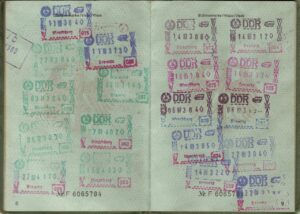A Solution to Doctor Shortages: International Physician Recruitment

The United States is grappling with a pressing challenge: a shortage of healthcare professionals. Congress is taking steps to meet the need domestically. In an effort to fill the physician pipeline, on March 29 Congress introduced the Resident Physician Shortage Act of 2023. The purpose of this legislation is to gradually expand the number of Medicare-supported medical residency positions by 14,000 over seven years. While this is a positive step, more will need to be done. The American Association of Medical Colleges (AAMA) estimates that by 2034 domestic demand for physicians will outpace supply by up to 124,000. Similar shortages are expected in nursing and other allied health professions. As the demand for quality healthcare continues to rise, one promising avenue to address the issue is international physician recruitment, with the support of locum tenens physicians.
What is Driving the Trend in International Physician Staffing?
Several drivers are combining to contribute to a projected substantial physician shortfall, including the escalating needs of an aging general population while an aging physician population reaches retirement. According to the AAMA, the severity of the shortage varies by specialty. Primary care shortfalls of between 17,800 to 48,000 are the largest area of concern. As medical care needs become increasingly specialized, they expect the demand for certain specialties to rise at a faster rate than current utilization. By 2034 the estimated deficit in surgical specialties (general, orthopedic and obstetrics/gynecology) could reach 30,200; medical specialties (cardiology, oncology, pulmonology and infectious diseases) up to 13,400, and other specialties combined (anesthesiology, neurology, emergency medicine and addiction medicine) another 35,600 at the outside. To bridge this gap, healthcare organizations are increasingly turning to international physician recruitment.

What Are the Benefits and Challenges of Hiring Internationally?
International physicians and locum tenens offer a flexible solution to staffing shortages. By hiring international medical professionals, healthcare providers are able to fill vacancies caused by leaves of absence, staff shortages, or periods of high patient demand. Locum tenens assignments provide organizations with the flexibility to maintain consistent care delivery while actively recruiting permanent healthcare staff. In addition to filling staffing gaps, these individuals can offer other talents and benefits:
-
Fresh Perspectives
Bringing a wide variety of skill sets, often from healthcare systems with different approaches and methodologies that enrich the local workforce with new ideas and innovative practices
-
Filling Specialist Gaps
Playing a crucial role in filling critical needs in specialized healthcare fields where shortages are most pronounced, such as rural medicine
-
Diversity Needs
Addressing the need for diversity, enabling effective communication and connection with patients with various backgrounds.
While the hiring of international physicians brings significant benefits, it is not without challenges. The legal and regulatory landscape surrounding international recruitment can be intricate, requiring healthcare organizations to navigate visa requirements and immigration policies.
What is the Process for International Physician Recruitment?

The process for recruiting international physicians is intricate and demands detailed planning and adherence to legal and regulatory frameworks. To ease these demands, healthcare institutions often collaborate with medical recruitment companies to help them navigate complex visa options and regulations.
-
Visa Options
The most common visa categories for healthcare professionals include the H-1B visa for specialty occupations and the J-1 visa for exchange visitors. The J-1 visa often requires participation in a sponsored exchange program, such as the Educational Commission for Foreign Medical Graduates (ECFMG).
-
Licensing and Certification
This process involves the evaluation of educational credentials, completion of licensing exams, and verification of clinical training. The requirements vary depending upon the medical specialty and the state in which the individual intends to practice.
-
ECFMG Certification
For foreign medical graduates, obtaining certification from the ECFMG is often a prerequisite for visa sponsorship and residency training programs. The ECFMG assesses the authenticity of medical education and credentials from outside the United States.
-
Residency Training
Securing a residency position involves a highly competitive process, including application through the Electronic Residency Application Service (ERAS), interviews, and matching through the National Resident Matching Program (NRMP).
-
Visa Sponsorship
A sponsoring institution assumes responsibility for the visa application process, which includes filing a petition with the U.S. Citizenship and Immigration Services (USCIS) and providing necessary documentation.
As the future of healthcare evolves, strategic physician recruitment and support for a diverse healthcare workforce will play a vital role. Embracing the benefits of hiring international medical workers, with a focus on the dynamic role of locum tenens in addressing the healthcare workforce shortage, is essential for meeting growing healthcare demand.
